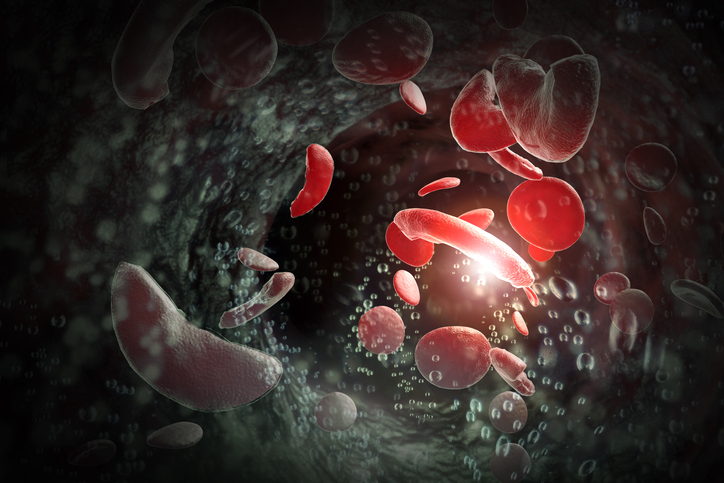Researchers presenting preliminary data from a clinical trial aimed at discovering a cure for sickle cell disease reveal positive results among its first patients. The team involved in the multicenter Ruby Trial presented an update on the safety and effectiveness of a single dose of EDIT-301, an experimental one-time gene editing cell therapy that modifies a patient’s own blood-forming stem cells to correct the mutation responsible for sickle cell disease. The gene therapy product was developed by Editas Medicine.
The results were presented on Saturday at last week’s European Hematology Association Hybrid Congress in Frankfurt, Germany.
The first four patients, two of whom were treated at Cleveland Clinic Children’s, had their stem cells collected for gene editing. The patients then underwent chemotherapy to destroy their remaining bone marrow, making room for the repaired cells that were later infused back into their body. This is the first time a novel type of CRISPR gene-editing technology—CRISPR/CA12—is being used in a human study to alter the defective gene, according to the scientists.
The data showed new white blood cells in all four patients at about four weeks with no severe adverse effects. Patients also achieved a normal level of hemoglobin. The patients have been free of sickle cell disease’s associated pain attacks for a period of 11 months and seven months following therapy.
“New treatments like this are critical for people who have sickle cell disease,” said principal investigator Rabi Hanna, MD, director of the pediatric blood and bone marrow transplant program at Cleveland Clinic Children’s and principal investigator. “These initial results provide hope that this new technology will continue to show progress as we work toward creating a possible functional cure for this devastating and life-threatening disease.”
While there are an estimated 1 million to 3 million people in the U.S. who have the sickle cell trait, there are only about 100,000 people with sickle cell disease. Sickle cell trait and the disease are found more often in certain ethnic groups, including African Americans. In the U.S., about one in 365 African American babies have sickle cell disease.
The Ruby Trial aims to enroll 40 adult patients, ages 18–50, with severe sickle cell disease. Patients will be monitored closely after treatment for up to two years.


